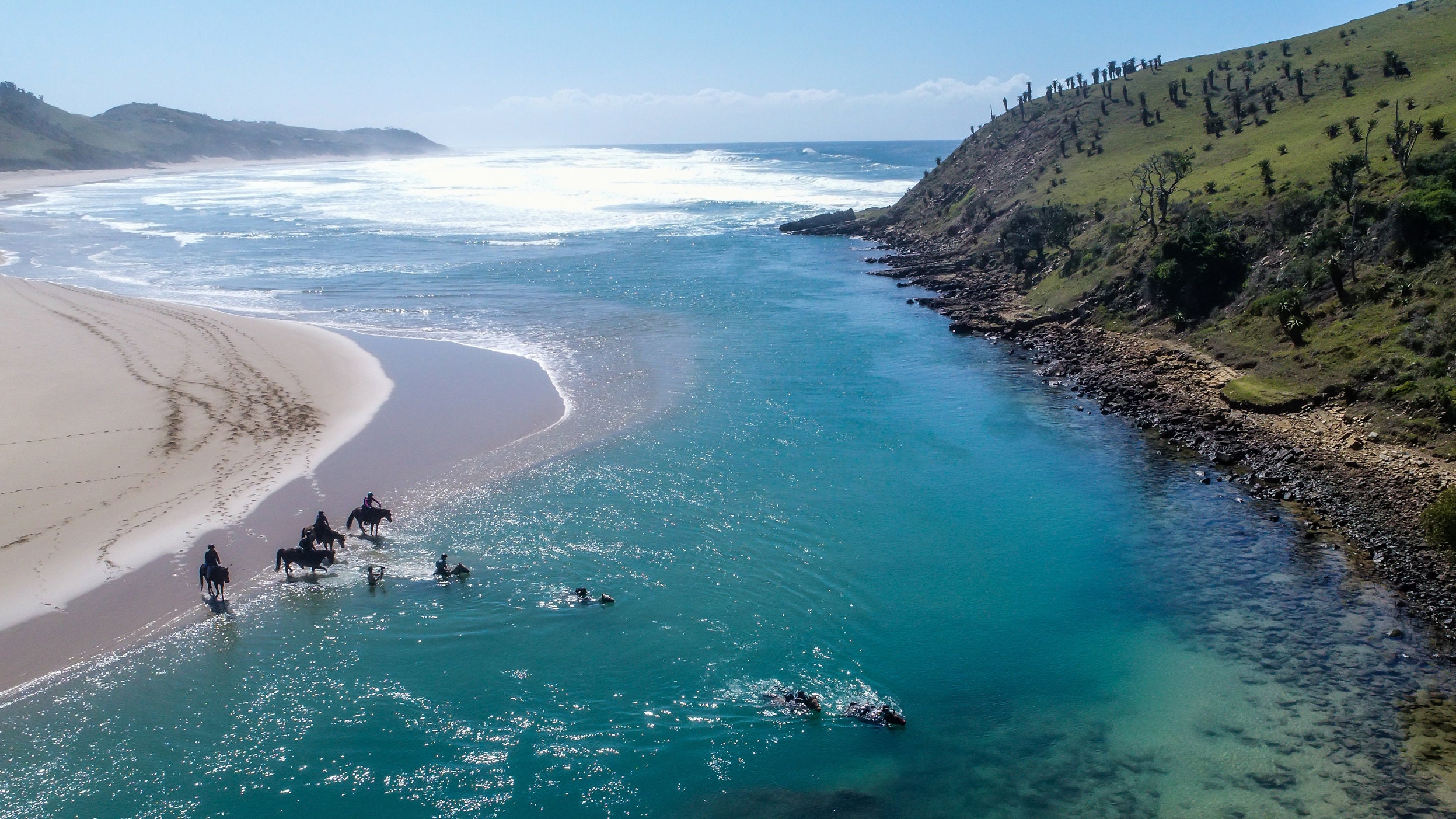- Natural Justice and Greenpeace Africa have applied to join the court case, brought on behalf of Wild Coast communities and small-scale fishers represented by the Legal Resources Centre (LRC) and Richard Spoor Attorneys.
- Part A of this case saw Shell interdicted from
- Both the joinder application and Part B will be heard by a full bench in Gqeberha at the Port Elizabeth High Court, over three days from Monday 30 May to Wednesday 1 June, next week.
On 29 November 2021, Natural Justice and Greenpeace Africa, with two other applicants, represented by environmental law firm Cullinan & Associates, instituted rule nisi proceedings in the Grahamstown High Court seeking an urgent interim interdict to stop the commencement of the seismic testing. That application was unsuccessful. However, a successful interdict was obtained a few weeks later by the applicants in the Sustaining the Wild Coast case.
Due to the similarities between the two court cases, Natural Justice and Greenpeace Africa filed an application in February 2022 requesting that their case for judicial review be joined with the application in the Sustaining the Wild Coast case. The government ministries and Shell raised no objections to the application to join the proceedings, while Impact Africa, having now split legal representation from Shell, objected to the joinder application. The joinder application as well as the judicial review of the DMRE’s decisions to grant the exploration rights and renew them twice, will be presided over by Judges Mbenenge JP, Nhlangulela DJP and Norman J in the Port Elizabeth High Court in Gqeberha, 30 May to 1 June 2022.

South Africa’s Wild Coast is South Africa’s is home to an incredible diversity of marine life, including many threatened fishes. It is also home to a high percentage of endemic species found nowhere else in the world. The offshore reefs are also known to be important spawning grounds for migratory fish species such as geelbek and seventy-four, which have been heavily depleted by intensive fishing effort. Research in the MPA has shown that many important linefish species are more abundant and larger in the no-take zones than in the controlled fishing areas. The research has also proved the benefits of the MPA to nearby fisheries. Large numbers of marine mammals such as dolphins and whales are found in this area, especially during the annual winter sardine run. Juvenile hammerhead sharks also aggregate in this area. Image credit: Danielle Zondagh
Key arguments before the court
Lawfulness of conducting a seismic survey without an environmental authorisation
Both the Mineral and Petroleum Resources Development Act (MPRDA) and the National Environmental Management Act (NEMA) render Shell’s activities prima facie unlawful. Shell argues that the Environmental Management Program (EMPr) approved in 2014, serves as an environmental authorisation. The applicants argue that Shell violated both the MPRDA and NEMA by commencing the seismic surveys without an environmental authorisation, since an EMPr does not displace NEMA nor constitute an environmental authorisation under NEMA.
Violations of communities’ constitutional rights
The EMPr that Shell developed is outdated and contains significant information gaps, including the harm to the environment and the impact of the surveys on communities’ rights. The EMPr and audit do not contain any consideration communities’ cultural, spiritual, or heritage associations to the ocean. Both the sea and its sand are held in reverence by the different communities along the coast. None of the mitigation measures proposed in the EMPr address, mitigate, nor minimise the harm to these cultural rights.
Inadequate public participation
Shell argues that it consulted all communities along the affected coastline by meeting with a representative of three traditional kings in the Eastern Cape. However, the traditional leaders do not represent all communities that will be affected by the seismic surveys. Moreover, none of the affected communities were engaged in the preparation of the 2013 EMPr nor the 2020 EMPr audit.
Failure to consider climate change and the interests of the whole community
The applicants argue that DMRE officials ignored the provisions of the National Environmental Management: Integrated Coastal Management Act (ICMA) and granted the exploration right without considering relevant provisions. In terms of the ICMA, the ocean is considered public property which must be managed in the interests of the “whole community” (including non-human species and future generations). The decision-makers also failed to consider the climate change impacts of exploring for, and then, exploiting oil and gas off the Wild Coast.
Procedural unfairness
Shell and the Minister of Minerals and Energy argue that the DMRE was not required to notify anyone that they had granted the exploration right in 2014 notwithstanding the hundreds of ordinary South Africans who registered as Interested and Affected Parties (I&APs) during the 2013 consultation process. The applicants say that this constitutes an affront to fair administrative action in clear violation of the MPRDA and the Promotion of Administrative Justice Act (PAJA), and that, as a consequence, I&APs were denied their rights to request written reasons for the decision and institute an internal appeal.
Impact of favourable judgment
If successful, several flawed decisions on the part of the DMRE will be set aside, while Shell and Impact Africa will be prohibited from undertaking seismic surveys under the exploration right in question. The relief sought, as amended, includes the review and setting aside of 1) the DMRE’s decision to grant the Exploration Right to Impact Africa in April 2014, 2) the DMRE’s decisions to renew the exploration right in December 2017 and August 2021, and 3) a final interdict prohibiting Shell from undertaking seismic survey operations under the exploration right.
Furthermore, this case also seeks a declaration that an EMPr under the MPRDA is not equivalent to an environmental authorisation under NEMA. Thus, a holder of an exploration right under the MPRDA may not undertake any seismic survey if it has not been granted an environmental authorisation. This will ensure that any future seismic testing abides by the dictates of the law, including the adequate public participation processes, need and desirability assessments and environmental impact assessments that obtaining an environmental authorisation under NEMA requires.
Author: Bryan Groenendaal











